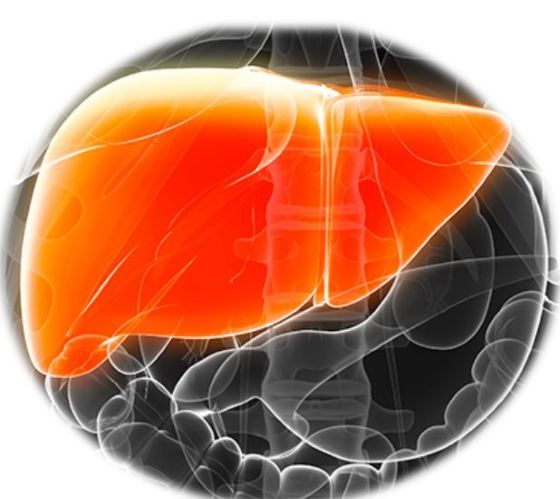- Clinical Technology
- Adult Immunization
- Hepatology
- Pediatric Immunization
- Screening
- Psychiatry
- Allergy
- Women's Health
- Cardiology
- Pediatrics
- Dermatology
- Endocrinology
- Pain Management
- Gastroenterology
- Infectious Disease
- Obesity Medicine
- Rheumatology
- Nephrology
- Neurology
- Pulmonology
Elbasvir/grazoprevir Efficacy High in Black Adults with HCV Infection
The current study was one of the largest analyses to date of black participants receiving all-oral DAA treatment.
©Sebastian Kaulitzki

In black adults with hepatitis C virus (HCV) infection, treatment with elbasvir/grazoprevir is highly effective, safe, and well tolerated, according to a recent pooled analysis of clinical trials.
The rate of sustained virologic response (SVR) at 12 weeks was similar for black participants and non-black participants, both overall and specifically for the subgroups of patients with HCV genotypes 1 or 4, say researchers.
The findings, published online on April 26, 2018 in the American Journal of Gastroenterology,1 provide evidence needed to demonstrate that direct acting antiviral (DAA) therapy is highly effective in black adults specifically, particularly since older interferon-based treatments were typically less effective in blacks, according to Philippe J. Zamor, MD, Carolinas HealthCare System, Charlotte, North Carolina, and coinvestigators
“There still exists some evidence that black people with HCV infection remain a difficult population to treat, and that black race may be an independent predictor of treatment failure in people receiving DAA treatments,” wrote Zamor and colleagues in their study report.
“There is also evidence,” they added, “that black participants are underrepresented in recent HCV treatment clinical trials, suggesting that additional data are required in this important population.”
The analysis was based on data from 9 international phase 2/3 clinical trials including 332 black participants, making it one of the largest analyses to date of black participants receiving all-oral DAA treatment.
In one previous analysis2 of similar size, investigators pooled data from phase 3 trials of ledpasvir/sofosbuvir in patients with genotype 1 HCV infection. They found that regimen had similar efficacy in 308 black participants as compared to the overall cohort of 1,949 individuals.
In the current analysis conducted by Zamor et al, participants received elbasvir 50 mg and grazoprevir 100 mg once daily either separately or as a fixed-dose combination tablet. Treatment was given for 12 weeks, or for 16 weeks in combination with ribavirin twice daily.
Next: SVR12 rates nearly equal
SVR12 rates nearly equal
For individuals with genotype 1 infections receiving 12 weeks of treatment, the rate of SVR at 12 weeks (SVR12) was 93.7% for black participants (282 out of 301 participants) and 94.2% for non-black participants (1,072 out of 1,138).
Similarly, SVR12 rates for individuals with genotype 4 infections receiving 12 weeks of treatment was 93.8% for black participants (15 out of 16) and 94.6% for non-black participants (88 out of 93).
For individuals with genotype 1 infection receiving 16 weeks of treatment including ribavirin, results were once again similar, with an SVR rate of 100% for black participants (15 out of 15) and 97.5% of non-black participants (77 of 79).
High SVR12 rates were also seen in the subgroup of black participants with compensated cirrhosis, chronic kidney disease, and sickle cell disease, while a somewhat lower response rate was observed among individuals with HIV coinfection.
Participants with virologic failure often had genotype 1a infection and either NS3 or NS5A resistance-associated substitutions seen at baseline evaluation, according to investigators.
The safety profile of elbasvir/grazoprevir was not different in the black versus non-black cohorts, with rates of drug-related adverse events of 30.0% and 36.6%, respectively. The most commonly reported adverse events among black participants were nausea, fatigue, headache, diarrhea, and constipation.
The rate of serious adverse events was somewhat higher among black versus non-black participants (7.6% and 3.4%, respectively), though that was in part due to a higher rate of stage 4/5 chronic kidney disease in the black participants, investigators said. Nearly one-third of black participants (31.0%) had stage 4/5 chronic kidney disease, compared to just 9.2% of non-black participants.
References:
1. Zamor PJ, Vierling J, Ghalib R, et al. Elbasvir/grazoprevir in black adults with hepatitis C virus infection: a pooled analysis of phase 2/3 clinical trials. Am J Gastroenterol. 2018 Apr 26. doi: 10.1038/s41395-018-0053-4.
2. Wilder JM, Jeffers LJ, Ravendhran N, et al. Safety and efficacy of ledipasvir-sofosbuvir in black patients with hepatitis C virus infection: A retrospective analysis of phase 3 data. Hepatology. 2016;63:437-44. doi: 10.1002/hep.28334.
